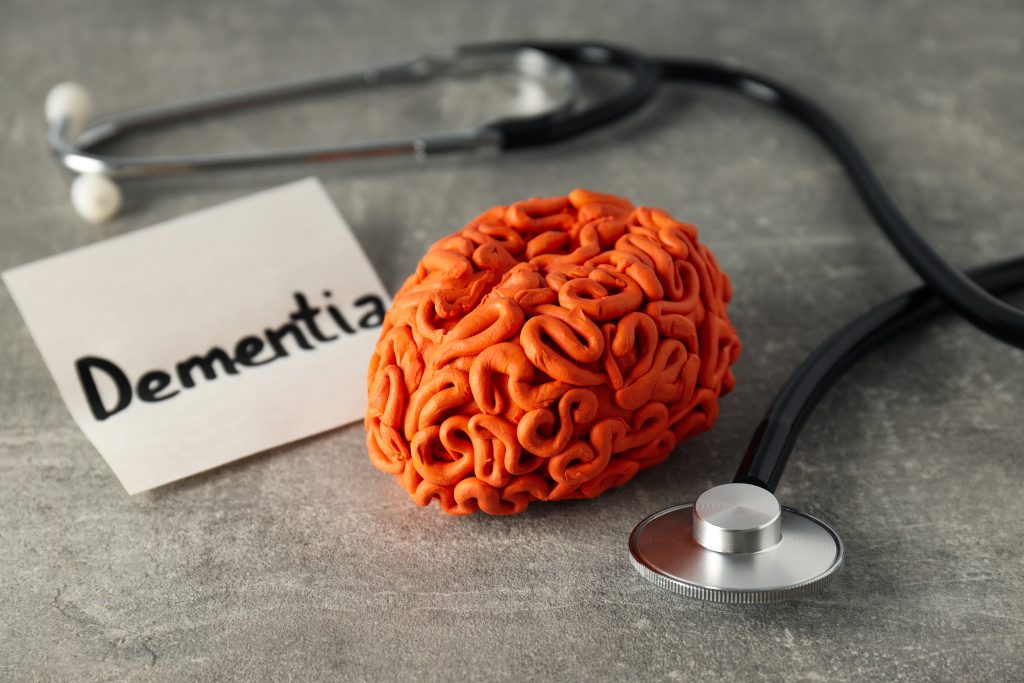Dementia is an ailment characterized by a group of symptoms which reveal a cognitive impairment and decline such as memory loss, confusion, hallucination, poor coordination of thoughts, difficulty communicating coherently, and so on. Dementia is a condition mostly associated with the elderly or senior citizens. This is because it is often triggered by aging and other conditions associated with aging such as Alzheimer’s, Parkinson’s disease, Huntington’s disease, and so on.
Dementia is a condition that negatively impacts the proper day to day life and relationships of those who are affected by it. Medically, it does not yet have a cure but its symptoms are managed with the aid of special treatments that aim at suppressing the symptoms and preventing them from getting worse.
This is why it is important to detect the onset of dementia as early as possible as an early diagnosis helps to prevent the symptoms from degenerating too badly and too quickly.
To help you with detecting dementia in yourself, in your parents or in a loved one in good time, here are 10 early signs that signal possible dementia and a need to go for a proper medical check up.
- CONFUSION SPELLS: People who are suffering from dementia will often experience frequent moments of confusion where they become confused about who they are, where they are, what year or month they are in, or what they are involved with in their lives at the moment.
- DIFFICULTY OR LOSS OF MEMORY: While it is normal for people to forget some information and memories that have happened at some point in their lives, constantly forgetting significant anniversaries and cherished memories in one’s life especially when the memory has been relatively sharp in the past is an early warning sign of dementia.
- UNSTABLE MOODS: People with dementia often begin to experience frequent and sometimes extreme fluctuations in their moods which can also be referred to as emotional dysregulation. They often move from highs to lows and lows to highs in quick succession. This is not normal and should be regarded as a possible warning sign of dementia.
- DECLINE IN COMMUNICATION COHESION: When a person, particularly an aging person, begins to struggle with communicating their thoughts in a way that is coherent, for example, if they start to babble a lot while speaking, repeat their words and sentences too often, or say things that do not make much sense, this is an indication that dementia may have set in.
- POOR DECISION MAKING & JUDGMENT: When an older person suddenly and regularly begins making poor decisions and judgments on matters ranging from basic personal hygiene, household safety, financial or relational decisions, etc, it is a possible early warning sign of dementia.
- IMPULSIVITY: Acting thoughtlessly and reacting impulsively to things could be an early warning sign of dementia.
- VISUAL & SPATIAL DIFFICULTY: People suffering from dementia often begin experiencing difficulty in accurately identifying objects and distance between people, places and things. This can cause them to bump into people, make wrong judgments when crossing the road and even when purchasing things. When this is observed, it should be treated as an early warning sign of dementia and a call to see the doctor.
- CARELESSNESS: Due to the cognitive decline which impacts memory agility, most people suffering from dementia become careless and often misplace objects or forget tasks they are working on. For example, forgetting to turn off the stove while cooking and forgetting where they dropped items. Unusual recurring carelessness in an aging person could be an early warning sign of dementia.
- WITHDRAWAL: Dementia also manifests as withdrawal and self isolation in some individuals. Affected people begin to avoid relational opportunities such as events, social functions and family gatherings. In the case where avoidance of socialization is an unusual behavior, this may be a warning sign of dementia.
- DIFFICULTY WITH TASKS: Those who suffer from dementia often begin finding it difficult to handle their everyday tasks and functions. Not being able to efficiently handle basic tasks which one would have normally been able to handle is a possible early warning sign of dementia.
Being diagnosed with dementia should not be considered as the end of one’s life. While there are many challenges associated with dementia, when diagnosed early enough, there are many treatments that are available and potent in suppressing and slowing down the effects of its symptoms.
If you find that you or your aging parent(s) are currently having any of these symptoms, we recommend that you fix an appointment with your doctor for a proper medical checkup and accurate diagnosis.
In the case that there is a diagnosis of dementia, a recommended and safe way to manage dementia is hiring a certified nursing assistant or professional caregiver who can provide help with tracking and administering medication, daily living activities, documentation of important information (such as names, dates, anniversaries, appointments, etc) or special memories which may be forgotten due to the effect of dementia, and companionship.
CONTACT VITALIS HEALTHCARE
At Vitalis HealthCare, our nurses and caregivers are professionally certified, trained and supervised by our director of nursing who is also a specialist in mental health to provide competent and compassionate care to our clients.
With us, you are in safe, competent and compassionate hands. Reach out to us and let us walk with you as you battle and manage dementia.
Phone Number
240.716.6874
Email: info@vitalishealthcare.com
Location
We provide our services in every county in the State of Maryland, United States of America.
Office Address: 8757 Georgia Avenue Suite 440 Silver Spring, MD 20910


